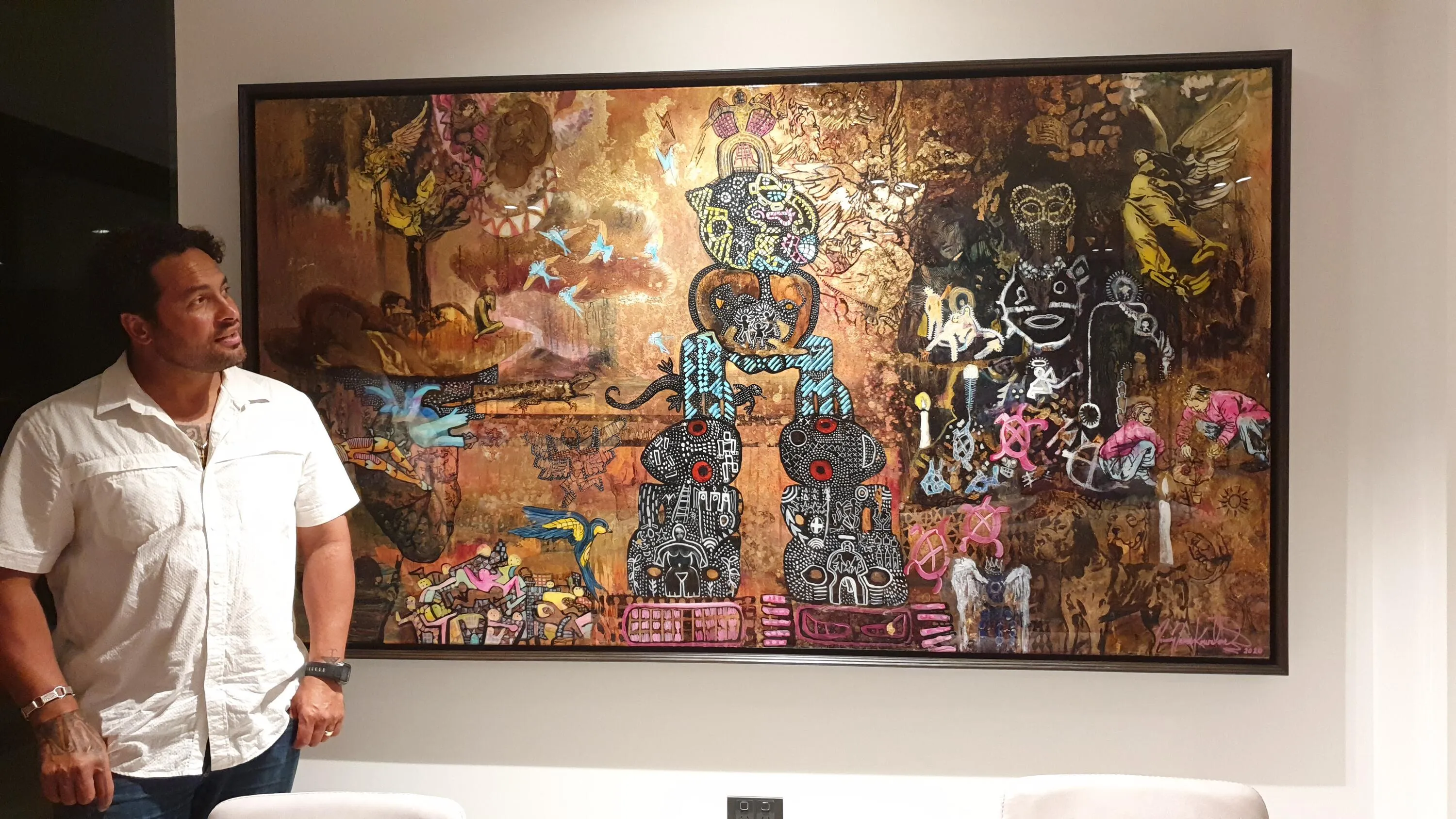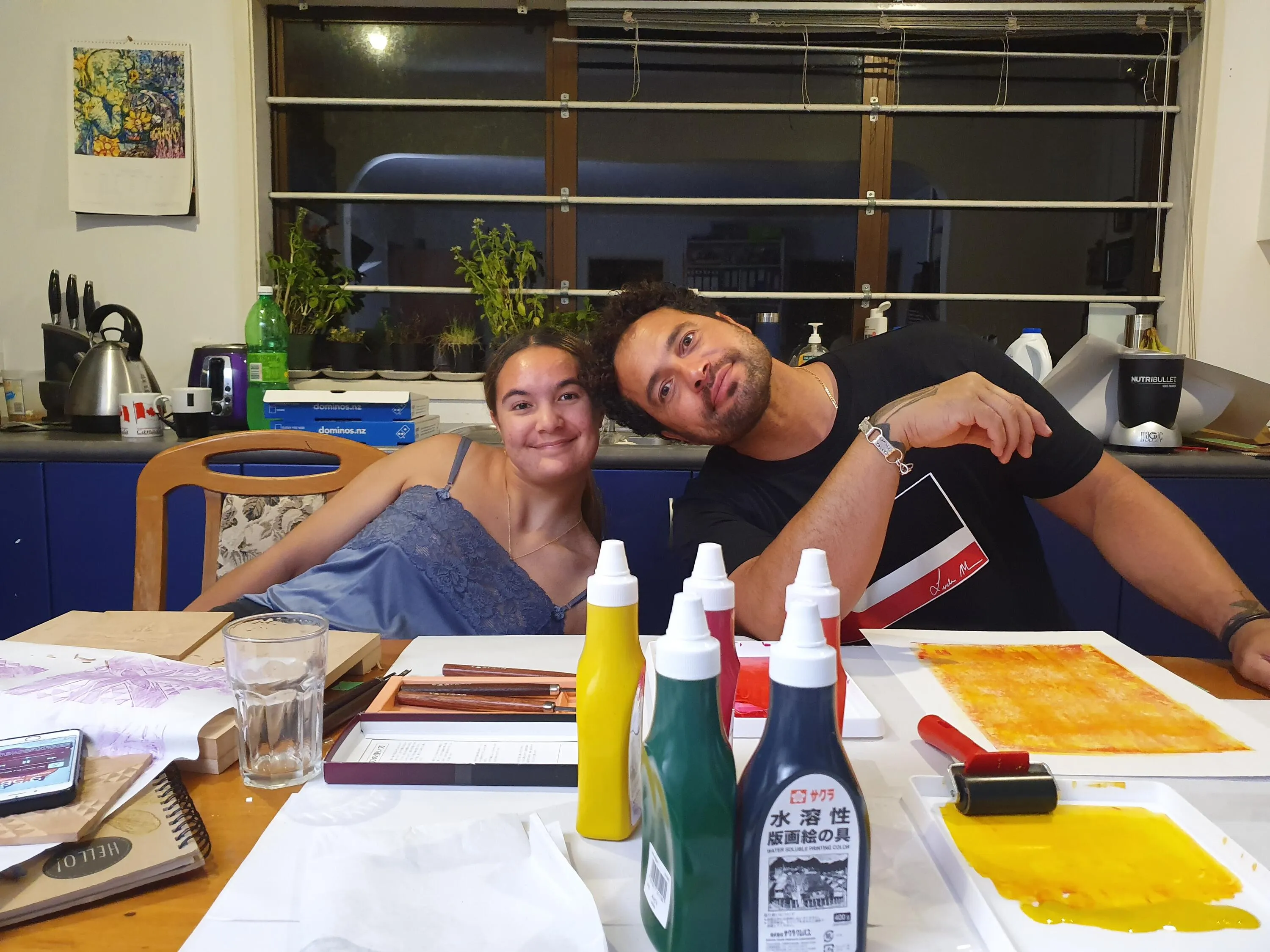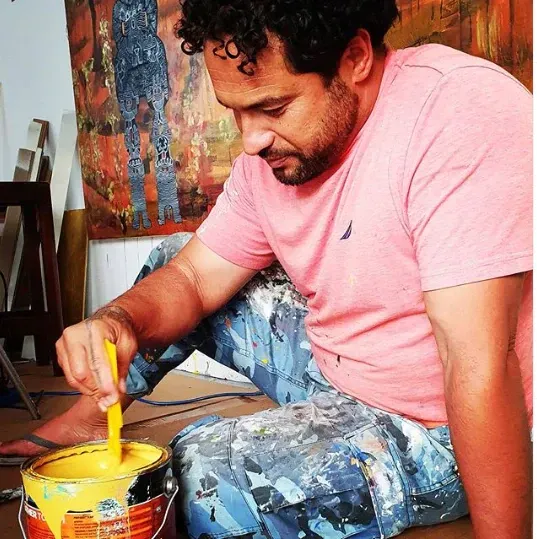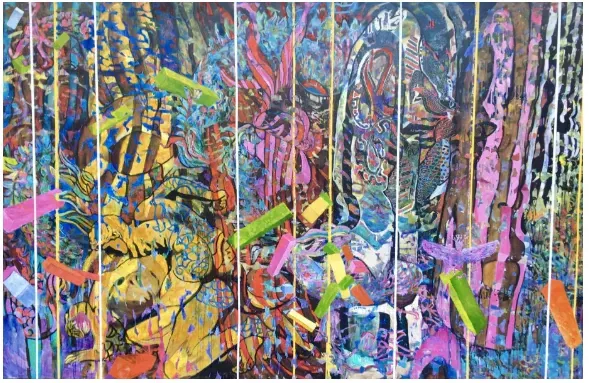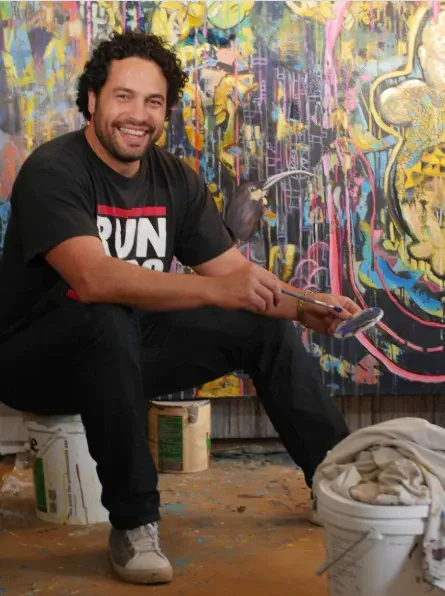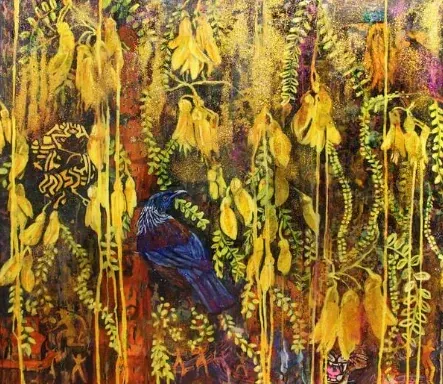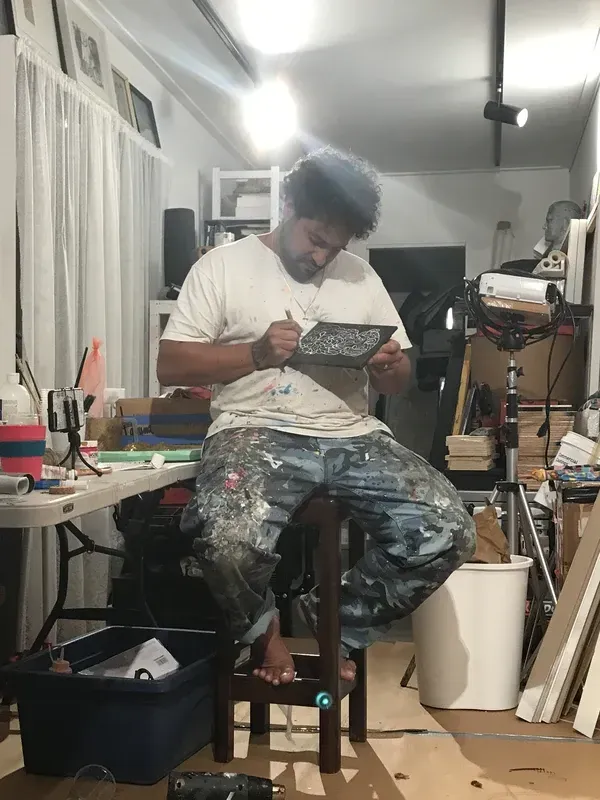Creative Parenting
Written by
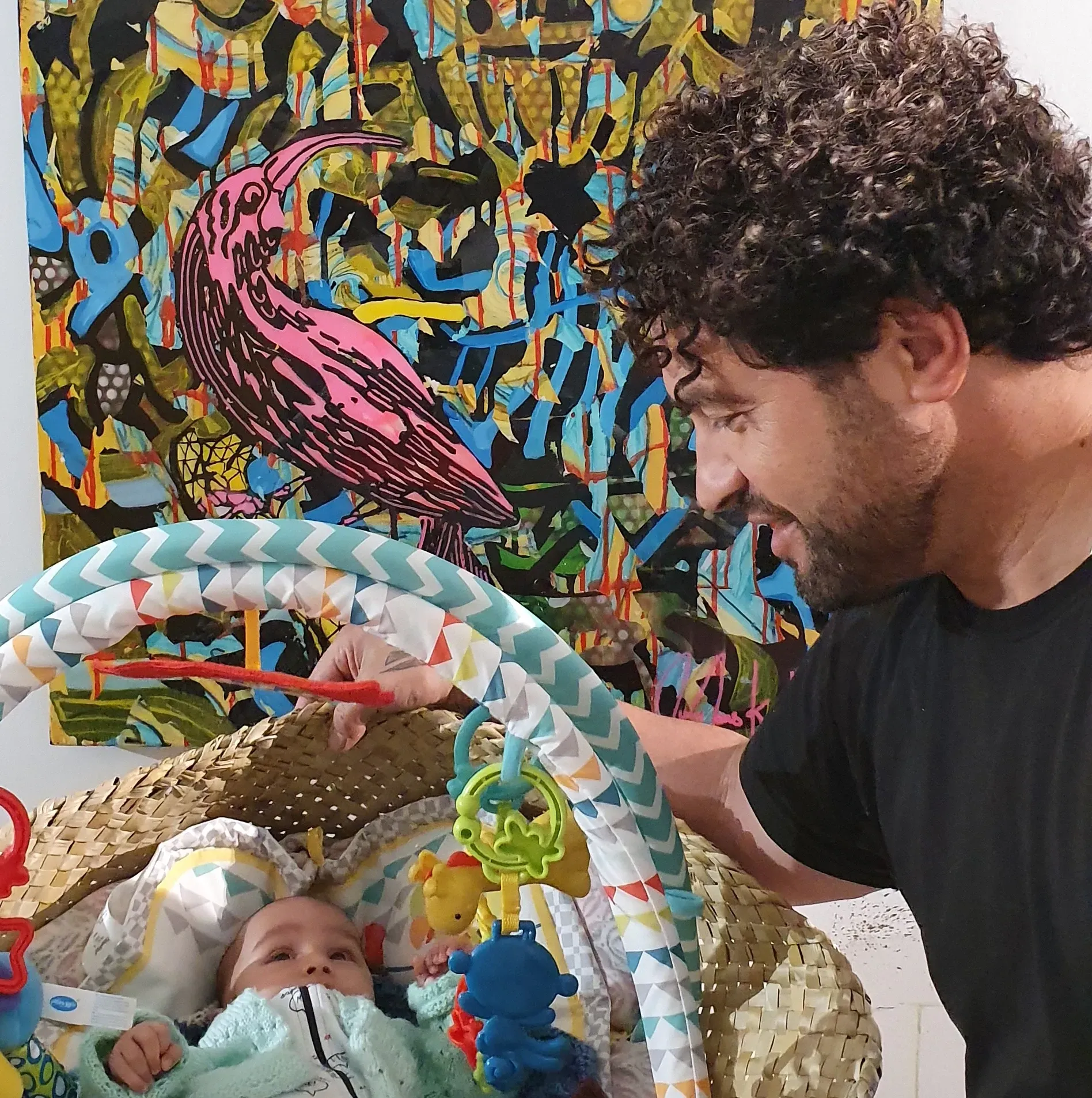
If there is one thing that creatives and parents can agree on, it’s that time is a precious commodity.
For visual artist and father, Jimmy James Kouratoras time is worth its weight in gold.
Kouratoras has established himself as an award-winning artist whose lush works merge a surreal sense of nostalgia with a pop culture bite. Collectively, they are fantastical yet grounded, personal yet universal and have garnered him an international fanbase. To date, he has exhibited in the United States, Australia and throughout New Zealand.
If that wasn’t enough to keep him occupied, Kouratoras is also a father to teenagers and a newborn. As he watched his son’s football game, we had a moment to discuss lockdown, tips and tricks to juggle parenthood and creativity and his hopes for the next generation.
Finding balance
“We’ve got a family of teenagers, so (Level 4) lockdown meant they had an opportunity to spend time with other family. Our baby was born during lockdown too which was very stressful - for a while we weren’t sure if I could be in the hospital while my wife was giving birth. In the end, we did a home birth for the first time. At the same time, I was halfway through building a studio and we couldn’t even finish it because we couldn’t get any of the materials,” reflects Kouratoras.
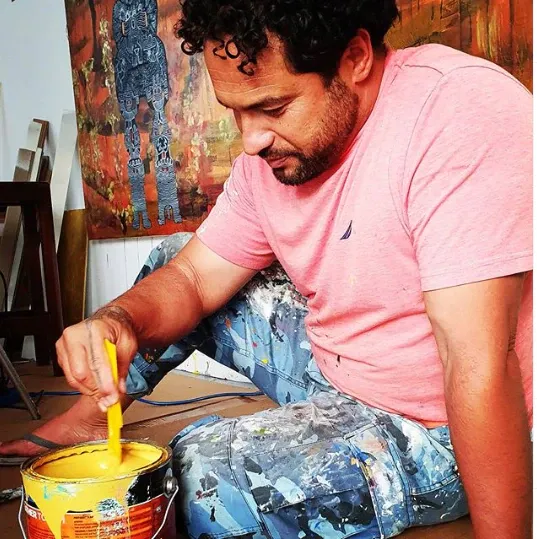
But despite those stresses, lockdown allowed Kouratoras to find that ever-elusive time to practice his work. ”It’s hard as an artist to get that time so when you do get it, you just bunker down and get into your groove. But the strangest thing was having the rest of the world do that as well, you know?
“It’s like the world became silent, whenever you stepped out of your door it was nice and quiet. I think there was something special about the lockdown, you can appreciate more….everyone got to share in creativity; it was the most profound thing when everyone was thinking that way.”
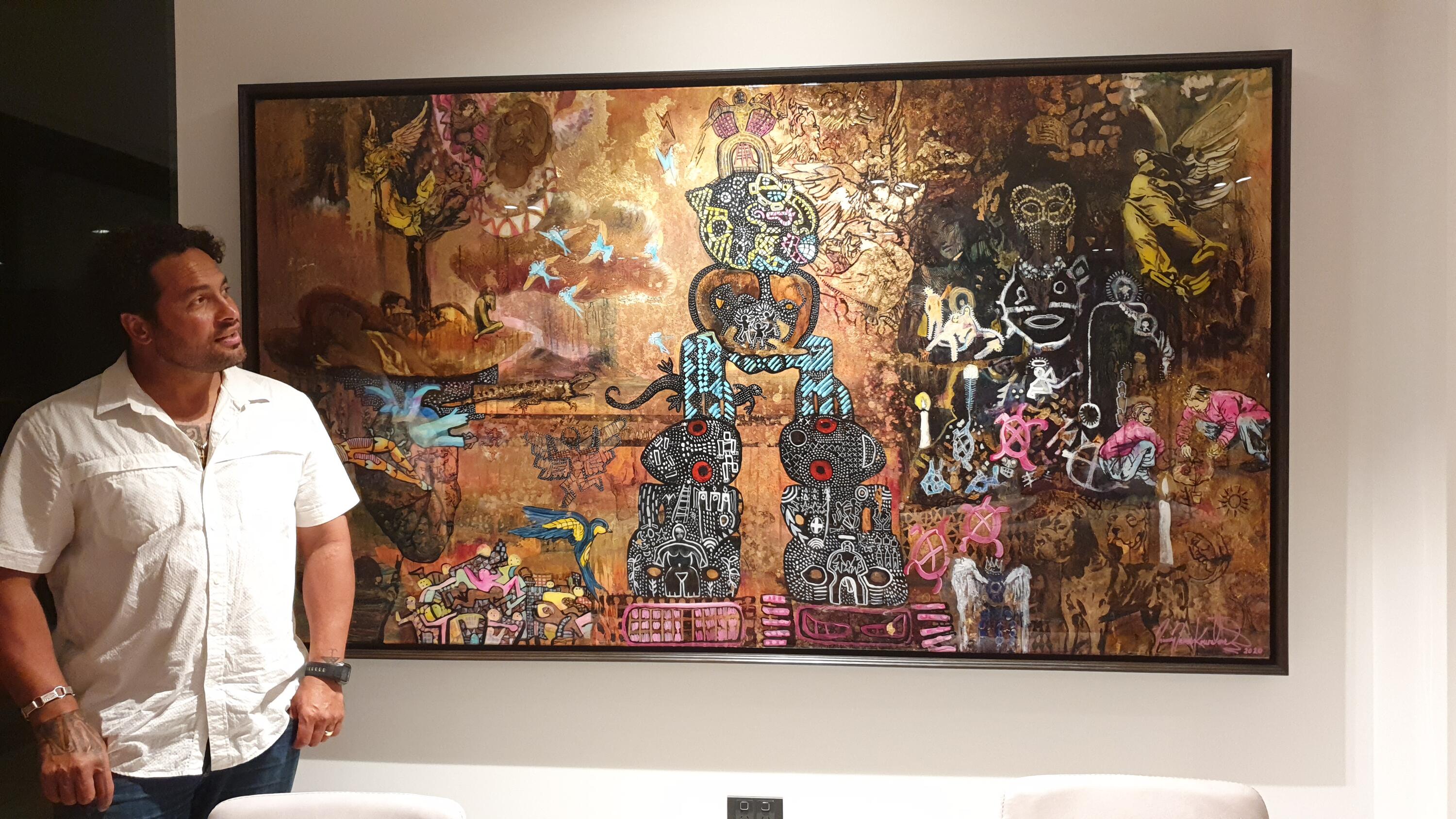
During lockdown, Kouratoras “found empathy for everyone that was experiencing this forced change. It broke people's habits and forced them to re-evaluate. Having gone through those kinds of changes myself, on my journey as an artist, I was able to feel for other people and what they were going through and know that I could be a rock for those people.”
This realisation will be reflected in his series of upcoming works created during lockdown. “I want to show that there is hope, the world will keep turning and [because of lockdown] we will grow in a real spiritual way,” says Kouratoras.
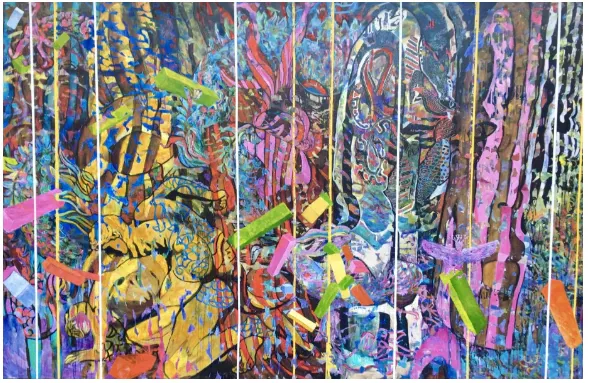
“Time will pass. Just breathe in and be aware of where we are right now and that we’re all in it together. It’s not an easy thing to change your internal landscape when everything goes haywire, and just sit with yourself. I guess during lockdown I found some strength in myself, I felt like I’d been there before already. Whenever I’d speak to friends or anyone who was feeling down about it, I’d just go ‘hey, it’s just a phase we’re going through, and we should just try to enjoy it’, try to find the magic that’s really happening which is allowing us to discover ourselves.”
Stolen moments
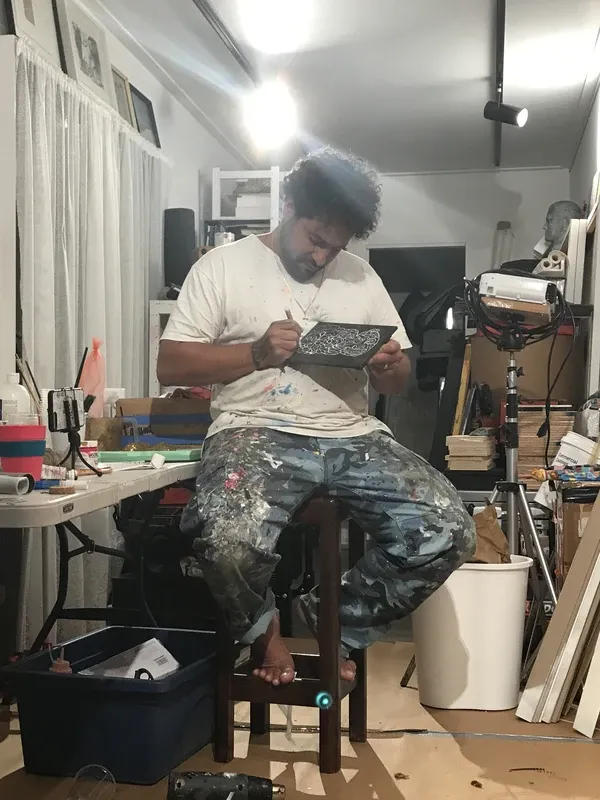
Juggling the childcare aspect of his life in conjunction with creativity during lockdown was “difficult - it’s one thing when your wife (Black Creatives Aotearoa founder Dione Joseph) is pregnant and you’re freaking out about when the baby is going to come - especially when the circumstances [around his birth] were unknown. Then there was a new set of challenges because he was up every three hours. During lockdown, I called the time when he was asleep ‘stolen moments’ because I could paint for half an hour and really push myself in the studio.”
Nowadays the duo take a much more structured approach to childcare, supporting each other by giving the other parent time to create. “It’s challenging, you have to really be strong mentally. But then you’ve got to be accepting that this is all part of the artistic process [because] this is what I’m going through so I work around it. it might mean that I get up earlier in the morning, or stay up til 3am, just keep going while everyone’s gone to bed.
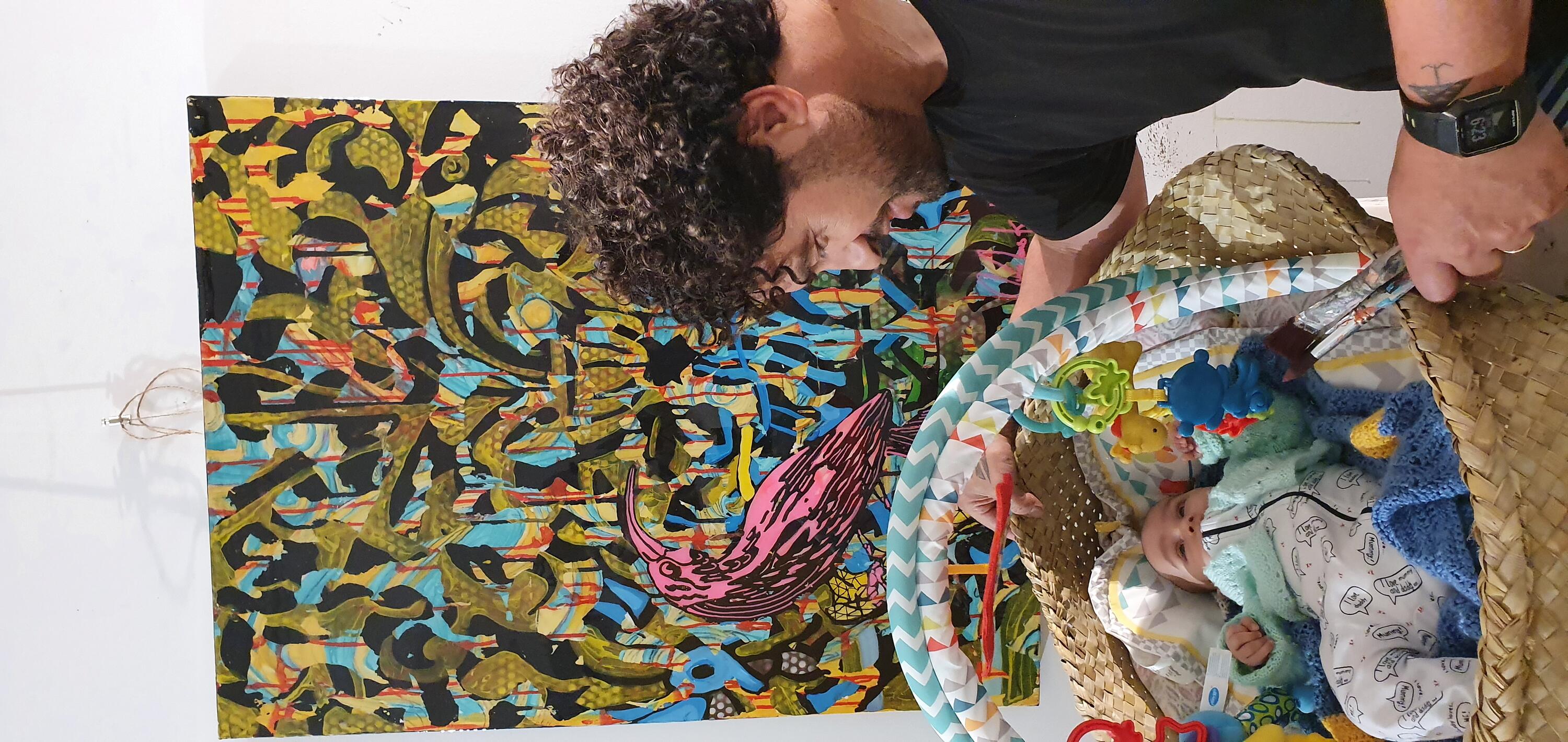
“That time changes, but for me, the main thing is you just keep going and stop beating yourself up about the idea you’re not getting your work done. Once you get past that self-doubt, you find space and it’s just more calm and then all of a sudden, that calm space is all you needed.
“Being an artist is not a 9 to 5 job, it’s 24/7 being. So if I’m not in my studio painting, I’ll be at my computer, maybe printing a few things out or changing the colour of stuff or something like that. But I’m always actively doing something toward my art every day. If you’re not making it, you’re talking about it. If you’re not talking about it, you’re making connections with people for future projects and things like that. So you never really stop, and when you become an artist, you never see all these things and then when you’re in it you can actually get things moving,” says Kouratoras.
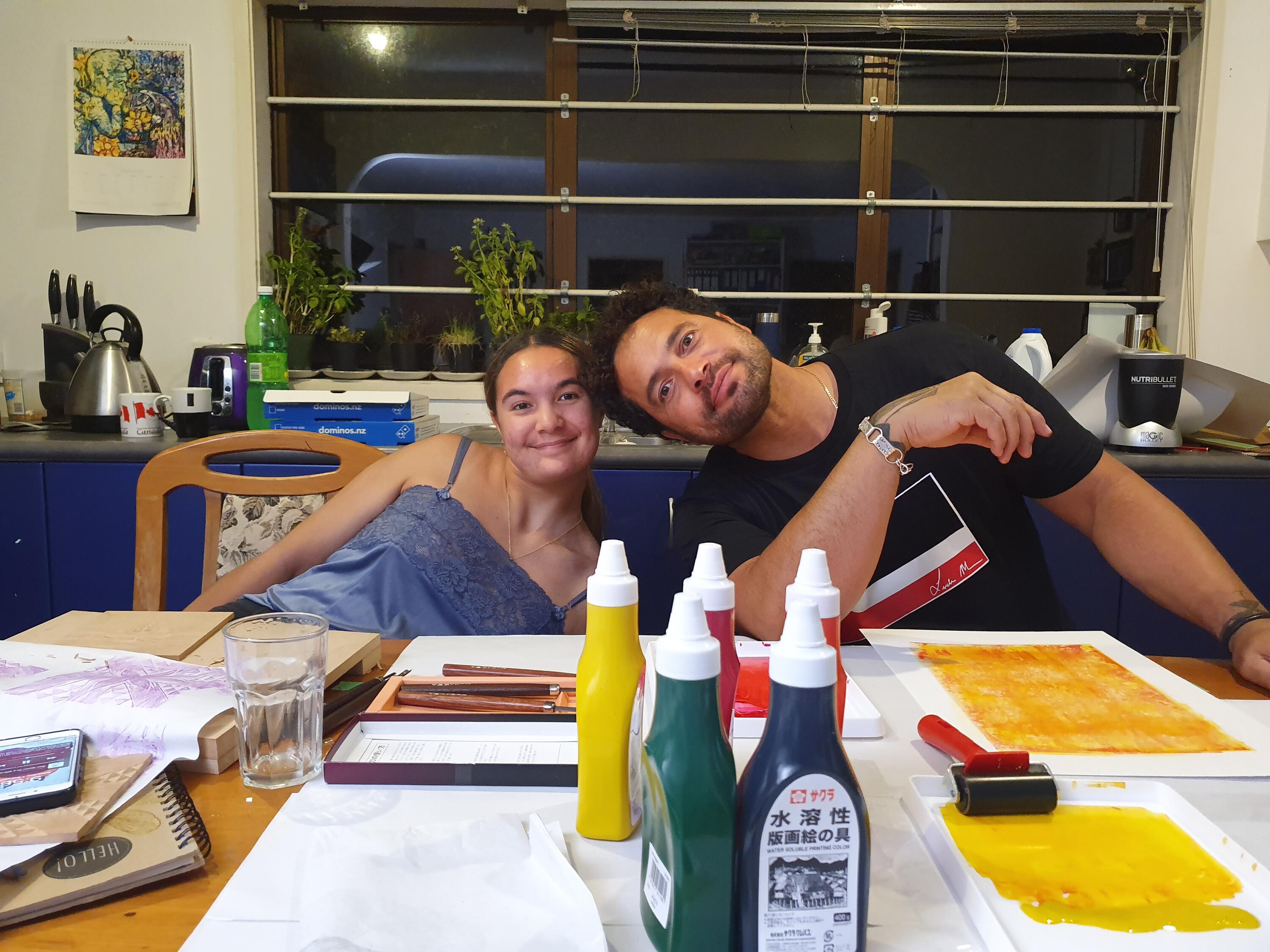
“I’m very lucky that Dione is in the arts as well, so she understands my world better than anyone else, and she’s my biggest supporter,” he continues. “She knows when I really need help in certain areas and she’s always there to steer me in the right track or bring something to my attention...navigating [the arts] with a family just makes everything that much more intense.”
How to dad
Due to the intensity that comes with balancing children and creativity, Kouratoras says that wider communities can support artists by giving them “anything that gives them time to create - it’s invaluable. In Māori and Pacific cultures, a village did help raise your child and if you were a carver or a weaver, you had them to help support you while you did your craft and I think that’s something we’ve all lost.
“The story behind those taonga was that it takes time and a community to make those works...nowadays it’s just an individual and maybe an individual who has two kids to look after - it’s not easy.”
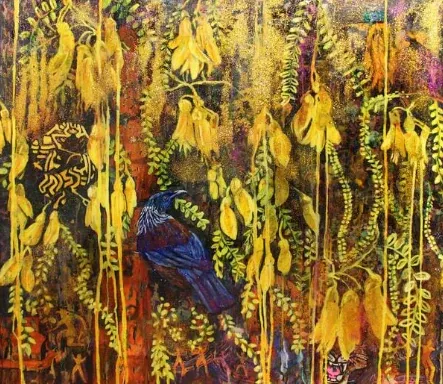
Having children has made Kourtoras “more committed to [his] vision and practice - it has strengthened my subject matter, my spirituality and the strength to believe that what I am doing is right.. My life is my family, supporting my family, my art and my health.”
He hopes for his children “that creativity plays a stronger part in a post-COVID world, community and life in general and that creativity is taken a lot more seriously as well as collaborations. You can be the world's greatest artist but it still takes a strong vision or director. I hope people can come together as a team rather than individuals so they can create and problem solve together and value each other.”
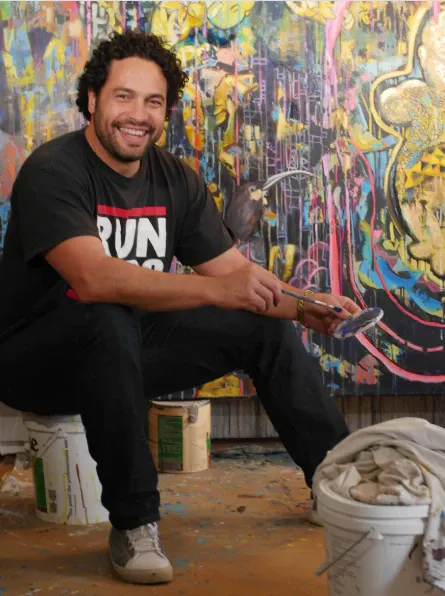
As the football game wraps up, Kourtoras has the following tips for parents in the arts:
-Be patient with your kids and yourself.
